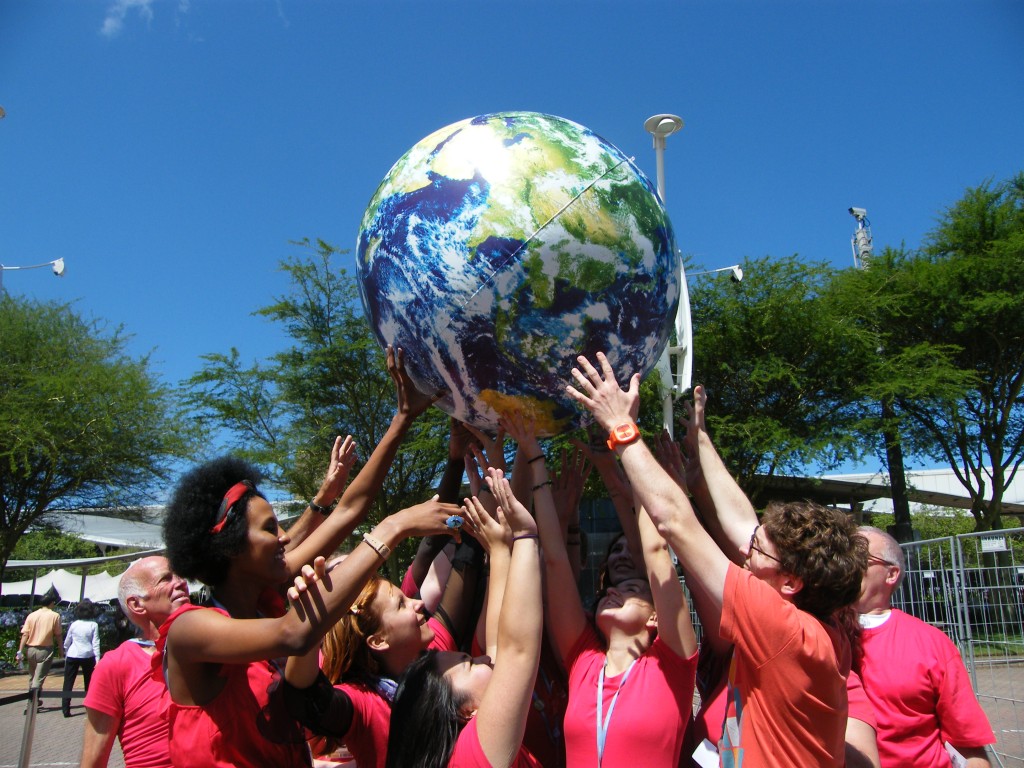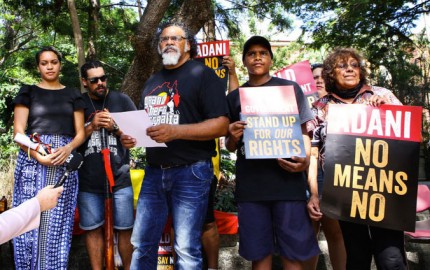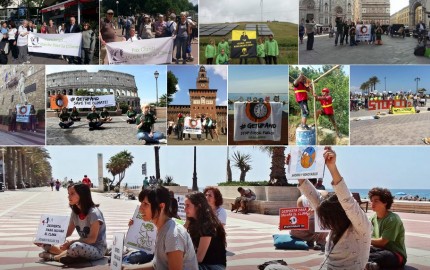This is a guest post from Charlotte Holm-Hansen and Yassen Tcholakov from the International Federation of Medical Students’ Associations (IFMSA)
Here in Geneva negotiators are stuck on how to streamline the language of the draft negotiating text that will serve as basis for negotiations in Paris. But just before the drama and confusion of the afternoon set in, we saw a little health miracle from our hosts.
This morning, negotiators started the day rolling through the final parts of the draft, and last on their list, ironically, was the pre-amble.
This was also our last chance to ensure that the link between climate change and health was properly recognised. So you can imagine how nervous I was.
As a medical student, I have always feared what climate change could do to exacerbate just about every disease I have ever had to memorise. It’s also sure to amplify future diseases I will have to confront as a doctor, and increase social inequality.
Climate change is already changing the distribution of vector-born diseases - like Malaria, and causing water insecurity, mass migration, and increased violence and conflict.
But I also know that dealing with climate change in a way that supports positive health and well-being outcomes can have what we call “health co-benefits”. For example, investing in sustainable public transport has been shown to have a massive impact on reducing rates of cardiovascular disease, most cancers and improved mental health.
So it basically does my job for me.
When I first came to Cancun, I spoke to 700 negotiators, and they all thought there was too little recognition of the nexus between health and climate change. So we published it in the Lancet, the world’s leading medical journal.
Ever since then, we created an alliance between different NGO’s to raise awareness on this. However, we still haven’t won the battle within the UNFCCC.
That’s why I was personally relieved this morning when I nervously listened to Switzerland’s very own Franz Perrez take the microphone.
We had only just begun discussing the pre-amble section of the latest draft, and Franz took the stand to recognise the importance of health as an overarching principle of combatting climate change.
In his proposal, he hammered in a sentence that literally, save our lives ;)
“Recognising that actions to address climate change simultaneously contribute to the attainment of the highest level of health”.
And he’s right.
Health is indeed crucial to the work of the UNFCCC and has been since its foundation. It was outlined in the first article of the convention which defines the “adverse effects of climate change” as “changes…which have significant deleterious effects on…human health and welfare”.
This is also supported by the world’s leading medical journal, and my bible, The Lancet.
In 2009, the Lancet made waves around the world when it said that “Climate change is said to be the biggest threat to health in the 21st century.”
This is why we need to recognise it here in Geneva.
Within the UNFCCC there are many health risks and opportunities, but if we get an ambitious deal, we’ll be able to avoid the risks, and enjoy the co-benefits of grasping our opportunities.
There will be a technical expert meeting on Health and Climate Change at the next UNFCCC meeting in Bonn, June 2015 which will be able to touch on this point much further.
However, even in the Lima Call for Climate Action, health was included in the text under article 19:
“19. Decides to continue the technical examination of opportunities with high mitigation potential, including those with adaptation, health and sustainable development co-benefits, in the period 2015–2020, by requesting the secretariat to: (a) Organize a series of in-session technical expert meetings”
What we need now is to take it further. We need to not only that Switzerland’s brave statement is cemented into the preamble, but as the “streamlining” begins, we need the wisdom to see how we can include the recognition of health throughout the body of the draft.
Health has a critical role to play in Adaptation, Mitigation and Loss and Damage. Right now it isn’t being recognised, but we believe that with some smart maneuvering in the next few days, we can find many more windows to fit health in.
It is crucial to our future, not only to me, but to you as well.










